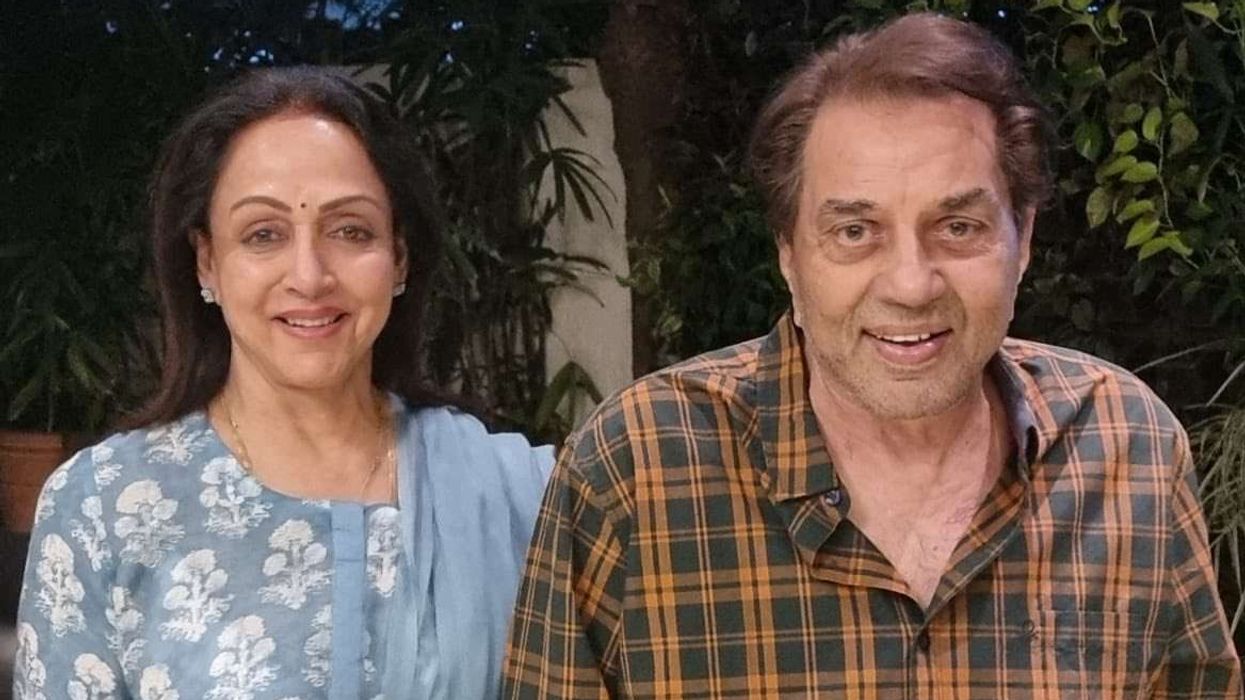THE FIRST Muslim woman to be in the cabinet and subsequently, the first Asian to chair a political party, Tory peer Sayeeda Warsi is truly a politician in tune with 21st century Britain.
A consummate tweeter, Baroness Warsi tells the Power List that there are still strict rules and principles she follows when using social media.
“I think you have to be cautious and pay as much attention to drafting tweets and messages as you would a press release, or in a broadcasting interview”, she says. “My A, B, C of Twitter Rules are Be Authentic, Be Brave, Be Challenging.”
A former winner of the Huffington Post Political tweet of the year back in 2014 when she announced her resignation from the government over the conservative party’s policy on Gaza, her enthusiasm for the platform remains undiminished.
“I believe that Twitter allows politicians to speak directly without the filter of favour of broadcasting. It also allows politicians to communicate quickly and interact with political conversations as they develop. Twitter is also an effective way of doing a press release but there are rules to follow.”
For the race equality campaigner, who unequivocally set the cat amongst the pigeons back in 2011 when she argued that Islamophobia had “passed the dinner-table test” in Britain, this past summer has certainly not been lacking in talking points.
Most recently, in August, Baroness Warsi pulled few punches in slamming the government’s appointment of former Liberal Democrat peer Lord Carlile to oversee a review of its controversial counter-terrorism Prevent strategy.
Prevent, viewed as something of a toxic brand by many opponents, has come under heavy criticism over the years for unfairly targeting Muslim communities. Carlile himself had previously admitted his “considered and strong support” for the program and told Parliament that he may be “somewhat biased” in favour of Prevent.
A stance, which a coalition of civil liberties groups say places the government in breach of its code on public appointments.
“Another misjudged appointment by the government”, tweeted Warsi. “Lord Carlile is neither independent of government thinking on this issue nor does he have the trust of the communities that have been on the receiving end of the excesses and mistakes of the Prevent policy.”
Last year, she had accused the current Prime Minister of “dog-whistle politics”, when he described Muslim women wearing the niqab as looking like “bank robbers and “letterboxes”.
After acknowledging Johnson’s “kind of apology” during the Conservative party leadership campaign, she continued on Twitter, “Offensive comments that lead to attacks on the streets are not ‘plaster falling off the ceiling’. It’s the start of the roof caving in and we will all get hurt in the process.”
When it came to Muslim leadership candidate Sajid Javid, who was Home Secretary at the time, she pulled no punches.
Referring to Javid’s comments in an interview that it was “odd” for him not to be invited to the state banquet honouring the visit of US President Donal Trump, she declared it - “Worrying if foreign countries start telling us who is and isn’t acceptable based on origins and background”.
She later congratulated Javid for getting his fellow candidates to agree to an external inquiry into Islamophobia in the Conservative party during a live leadership hustings on the BBC.
In 2017 her book, The Enemy Within was published and its central thesis was a scathing critique of the policies of multiple governments towards Britain’s Muslim community.
While acknowledging Javid’s good work, she also tweeted, “It’s a shame that it’s taken 4 years and a leadership contest to finally drag my colleagues kicking and screaming to address this issue.”
She tells the Power List, “Having campaigned for this inquiry for a number of years, I am delighted that senior members of the party are now supportive of it. I hope that the inquiry allows us to understand Islamophobia and its various manifestations and
ensure that those who are Islamophobic, are not welcomed into the Conservative party.”
Like much of the country at large, she is keen to move on from the Brexit deadlock and internecine party politics, and focus on some of the underlying issues that have led Britain to the position it finds itself in today.
“For me, the issue of housing is central to the climate of division that we have seen in the lead up to, and in the post Brexit referendum”, she says.
“It is important that people in full-time jobs feel that they can afford a permanent home. So, I would like to see both home building for purchase but also an extensive social housing programme. Earlier this year, I was Commissioner to the Shelter Commission, which launched the Social Housing Commission Report on 8th January 2019, in which we proposed a large-scale social housing programme with details of costings and return.”
Warsi’s parents were originally from Pakistan and she grew up with her four sisters in Dewsbury, West Yorkshire, an area that has seen BNP councillors and EDL marches in recent years.
Her father was a former mill-worker and bus driver who went on to set up his own bed manufacturing business. A law graduate from Leeds University, she set up her own practice in her home town, having also worked for the Crown Prosecution Service.
She stood as an MP in Dewsbury during the 2005 election campaign as the first Muslim woman to be selected by the Conservative party but did not win the seat.
After David Cameron took over the leadership of the party, he appointed her his shadow minister for community cohesion and social action by making her a life peer in 2007. She became the youngest ever peer to enter the upper chamber at the age of just 36.
After becoming party chair and Minister without Portfolio in 2010, she took up positions as minister of state for faith and communities and senior minister of state for foreign and commonwealth affairs.
Amongst her many achievements in government, Baroness Warsi led the largest ministerial delegation to the Vatican and established the Remembering Srebrenica programme. She also led a campaign to
make Britain the first western country to issue a Sukuk (Islamic bond) in 2014.
She is Chair of the Baroness Warsi Foundation dedicated to improving social mobility and a Trustee of the Savayra Foundation, a women’s education and social development charity working in Pakistan and Azad Kashmir.
Currently Pro Vice-Chancellor at the University of Bolton, she is also an Advisor to Georgetown University Washington DC and Visiting Professor at St Mary’s – the oldest Catholic university in the UK.
@SayeedaWarsi – 150k followers - Twitter







